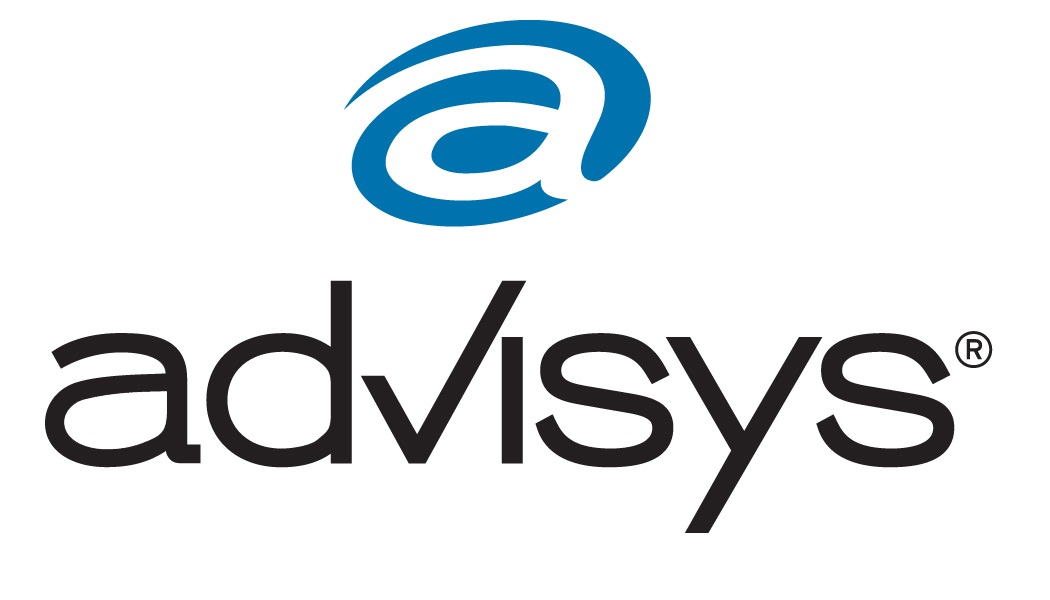Buying a home
There are advantages and disadvantages to buying or renting homes. What should be considered when looking for a home? Learn how to search for a home and what to consider when financing.
Owning a home has long been a part of the American dream, one that many Americans have already achieved. According to recent statistics from the U.S. Census Bureau, 65.8% of all households in the United States live in owner-occupied housing. 1
Although the process of buying a home is often complex and confusing, it can be simplified by dividing it into several parts:
Renting vs. home ownership
There are advantages and disadvantages to both renting and buying a home:
| Advantages | Disadvantages | |
| Renting | Mobility: Renter can move without worrying about selling the home or the home's market value at time of sale. Initial cost: No need for large down payment. Monthly cost: Monthly rent usually less than mortgage payment; in some areas rents are controlled; other opportunities may provide greater investment return. Maintenance: Few or no maintenance responsibilities. |
Monthly cost: Rents can increase over time. Equity: Renter builds no equity in home. Space: Often less floor space. Personalization: Less freedom to decorate the home. Taxes: No deduction for rent payments. 2 |
| Buying | Monthly cost: With a fixed rate mortgage, monthly payments remain level; with a variable rate mortgage, monthly payments can fluctuate. Equity: Homeowner can build substantial equity over time. Space: Typically larger floor space than with a rented home. Personalization: Can usually decorate to make home reflect owner's tastes. Taxes: Interest and property taxes may be deductible. 2 |
Mobility: Ownership limits ability to move; homeowner must be concerned with selling the home as well as the home's market value at time of sale. Initial cost: Substantial cash usually needed for down payment and closing costs. Monthly cost: Monthly mortgage payment typically higher than monthly rent; other opportunities may provide greater investment return. Maintenance: Homeowner is usually responsible for all maintenance and repairs. |
Financing a home
- Qualifying for a mortgage: Most homebuyers purchase their home by taking out a loan known as a "mortgage." Although the actual standards will vary from one lender to another, the following factors are frequently considered in evaluating a mortgage application:
- Credit score: What is the prospective borrower's credit score? It's a numerical value measuring how well (or how poorly) a loan applicant has dealt with debt in the past.
- Down payment: How much of a down payment is the prospective borrower able to make? 10%? 20%? 30%? None?
- Loan purpose: Is the home being purchased as an investment or as a place where the borrower will actually live?
- How big a monthly payment? In considering a loan application, a lender may also apply certain financial "tests." One such test limits the monthly housing payment, plus the monthly payments for any other debt, to no more than 36% of a consumer's gross monthly income. For example, if a consumer has gross monthly income of $4,000, the monthly housing payment plus any other debt repayment should not exceed $1,440 ($4,000 x .36).
Given a specified monthly payment limit, the next step is to determine what size mortgage that monthly payment will allow. The answer to this depends on the number of years to repay the loan and the annual interest rate. The table below illustrates the approximate total monthly payments 3 under varying term and interest rate assumptions.
| Loan Amount | 4.5 % Annual Interest Monthly Payment |
5.5 % Annual Interest Monthly Payment |
6.5 % Annual Interest Monthly Payment |
|||
| 15 Years | 30 Years | 15 Years | 30 Years | 15 Years | 30 Years | |
| $100,000 | $877.49 | $619.19 | $929.58 | $680.29 | $983.61 | $744.57 |
| $200,000 | $1,754.99 | $1,238.37 | $1,859.17 | $1,360.58 | $1,967.21 | $1,489.14 |
| $300,000 | $2,632.48 | $1,857.56 | $2,788.75 | $2,040.87 | $2,950.82 | $2,233.70 |
| $400,000 | $3,509.97 | $2,476.74 | $3,718.33 | $2,721.16 | $3,934.43 | $2,978.27 |
| $500,000 | $4,387.47 | $3,095.93 | $4,647.92 | $3,401.45 | $4,918.04 | $3,722.84 |
- Down payment and closing costs : Lenders frequently require a homebuyer to pay a certain portion of the home price in cash. Depending on the lender, this down payment usually ranges from 5% to 20% of the purchase price. With down payments of less than 20%, the lender may require the borrower to apply for private mortgage insurance, which protects the lender in case the buyer defaults. Under some government programs, a buyer may be allowed to purchase a home with no down payment. A buyer will also be required to pay certain "closing costs", fees and charges associated with processing the sale. Closing costs can be 3% to 6% of the purchase price.
- Tax deductibility of interest and property taxes: A homebuyer will also want to consider the "after-tax" cost of home ownership. Taxpayers who meet certain requirements may be able to deduct mortgage interest and property taxes from taxable income. For example, assuming a taxpayer pays $10,000 in deductible mortgage interest and property taxes during a year and is in a 24% marginal tax bracket, the after-tax cost of these expenses is $7,600 ($10,000 x .24 = $2,400; $10,000 - $2,400 = $7,600). 4
Finding a home
What type of home? There are three basic forms of home ownership:
| Property Owned | Sell or Rent | Maintenance | Owner Payments | Other Issues | |
| Single-Family Home | The structure and the land | Owner can decide to rent or sell home. | Owner responsible for all repairs and maintenance. | Mortgage, insurance and real estate taxes. Loan secured by home. | Greater freedom to personalize the home. Generally more responsibility. |
| Condo | Individual living space. Homeowner's association owns building, land and common areas. | Owner can decide to sell. Restrictions on renting will vary. | Homeowner's association pays for most building maintenance and repair. | Mortgage, insurance and taxes on individual unit; monthly fee to homeowner's association; mortgage secured by individual unit | Can be more restrictive with regard to issues such as children, pets, outside decoration. Fewer maintenance concerns. May have extra amenities such as swimming pools and tennis courts. Owners may be responsible for additional expenses or charges. |
| Co-op | Shares in a corporation which owns building. Individual lease with corporation grants exclusive right to use apartment. | Owner can decide to sell. New buyer subject to approval by co-op board. May have restrictions on renting. | Co-op pays for most building maintenance and repair. | Monthly payments to co-op cover insurance, taxes, mortgage on building and operating costs. Loan payments to repay purchase of shares in co-op. Loan secured by shares in co-op. | Can be more restrictive on issues such as children and pets. Fewer maintenance concerns. May have extra amenities (pools, tennis courts, etc.). Owners may be responsible for additional expenses or charges. |
Other factors to consider
- Neighborhood : Real estate agents will often refer to this as "location." In general, the relative attractiveness of an area will usually be reflected in the level of prices in the neighborhood. Personal issues such as good schools, easy access to public transportation or proximity to features such as shopping, recreation or work, are important factors in determining what is a "good" location.
- Home features and characteristics : Specific home features such as a minimum square footage, number of bedrooms or bathrooms or a swimming pool. Many shoppers will list the most attractive features in priority order, in case an offered home lacks some of the desirable features. Keeping in mind that the home will one day be sold, many individuals look for features that are attractive and useful both to themselves and to others.
Searching for a home
- Real estate agents: Real estate agents can be quite helpful in locating a home, particularly those who have access to a computerized multiple listings service. A good agent will have extensive real estate experience, as well as detailed knowledge of a specific area or neighborhood.
- New home developments : New homes tend to be more expensive than existing homes. New homes also tend to have fewer problems, and often have builder warranties.
- Classified ads : Classified ads in newspapers (both in print and online) can be useful sources of information. Such ads can provide a sense of general price levels. They can also provide leads to homes which are being sold directly by their owners, and not through an agent.
1 Source: United States Census Bureau press release, “Quarterly Residential Vacancies and Homeownership, Second Quarter 2022.” August 2, 2022.
2 Based on federal income tax law; state or local income tax law may vary.
3 Payment includes principal, interest and estimated taxes and insurance. Property taxes and insurance are estimated at 1.35% of the loan amount.
4 Under the Tax Cuts and Jobs Act of 2017 (TCJA), for 2018 – 2025, a taxpayer's deduction for property and state and local income or sales taxes, is limited to $10,000 per year ($5,000 MFS). Further, a deduction is allowed only for interest paid on "acquisition debt" (debt used to acquire or substantially improve a home), on a first and second home, of up to $750,000 ($375,000 MFS). TCJA also significantly expanded the standard deduction amounts available to individuals. Many taxpayers will find it more advantageous to use the expanded standard deduction, rather than claiming an itemized deduction for mortgage interest and property taxes.





